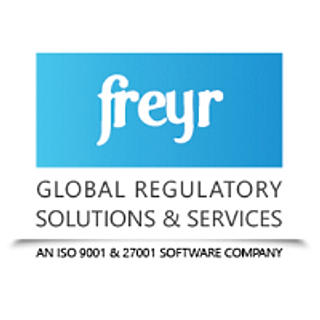Understanding FDA Regulations for Food Dietary Supplements
- Freyr Global Regulatory Solutions
- Feb 21, 2025
- 3 min read
The United States (US) offers a wide variety of food and dietary supplements, each claiming to deliver distinct advantages to consumers. With an overwhelming selection that ranges from vitamins and minerals to herbal remedies and protein supplements, the market is filled with items that assert they can improve health, address specific health issues, and mitigate disease risk. Yet, given the sheer number of choices, it often becomes difficult for consumers to make well-informed decisions about which products to choose. This blog will delve into the complex landscape of food and dietary supplement claims in the US by exploring the various kinds of claims, regulatory requirements, and essential knowledge for consumers to navigate their options wisely. Understanding Claims In the US, labels on food and dietary supplements feature claims regarding the product's health benefits, nutritional content, and unique attributes that set them apart from competitors. These claims can be found on both Front-of-Pack (FOP) and Back-of-Pack (BOP) labels. Regulatory Framework and Health Claims The US FDA primarily governs claims made on food and dietary supplement labels, ensuring that such claims are accurate and non-deceptive. The FDA oversees manufacturing, labeling, and marketing practices for dietary supplements to confirm their safety and effectiveness. Types of Claims There are three main categories of claims used on food and dietary supplement labels in the US: 1. FDA Health Claims: These are based on “significant scientific agreement” among experts, ensuring that the claimed benefits of ingredients effectively relate to disease or health conditions. If there’s no broad consensus on the health benefit, qualifying statements must clarify the evidence supporting the claim.
2. FDA Nutrient Content Claims: These outline the specific nutrient levels found in a product or supplement and require prior FDA approval.
3. FDA Structure/Function Claims: These describe how food or supplements affect human body structure or function but cannot be misleading or false, and they don’t require premarket scientific approval. Regulatory Steps for Claim Approval The regulatory steps involved in obtaining claims approval include: - Claim Specification: Manufacturers must clearly define the claims to be made concerning the product. - Scientific Evidence: This involves conducting scientific research to substantiate the claim, with data derived from clinical trials, epidemiological studies, and additional scientific sources. - Petition Submission: Manufacturers submit a detailed petition to the FDA, providing the supporting scientific evidence for the claim. - FDA Evaluation: The FDA reviews the petition and determines if there's “significant scientific agreement” supporting the claim. - Labeling Approval: Once approved, the manufacturer can proceed to include the claim on the product label. - Timeline Considerations: The FDA review process can be lengthy and unpredictable, with reviews potentially leading to rejections or requests for modifications. Depending on the complexity of the claim, approval timelines can vary significantly. Health claims are permitted for use under the Food and Drug Administration Modernization Act (FDAMA) for up to 120 days after submission notice, pending FDA assessment, highlighting the variability in timelines for claims approval in the US. Challenges Faced by Manufacturers Manufacturers encounter several hurdles in securing claim approvals: - Scientific Evidence Compilation: Collecting adequate scientific data to support claims can be both costly and time-consuming. - FDA Review Process: Given the protracted and unpredictable nature of the FDA's review, a claim’s rejection or demand for modification is not uncommon. - Compliance with Food Labeling Regulations: Labels must adhere to complex FDA regulations, complicating the process further. Consequences of Non-Compliance Failure to comply with FDA regulations can lead to severe repercussions for manufacturers, including: - FDA Warning Letters: Companies may receive warning letters for making unverified claims. - Product Recalls: The FDA may mandate the recall of products deemed unsafe or incorrectly labeled. - Legal Repercussions: Violations of FDA regulations may result in civil or criminal legal actions from consumers or regulatory bodies. In summary, a thorough understanding of food and dietary supplement claims in the US requires familiarity with various claims, regulatory frameworks, and essential consumer considerations. Freyr’s regulatory experts can guide you through the complexities of this field, ensuring compliance with FDA regulations and providing support in substantiating claims with scientific evidence. Partner with Freyr for safe and effective products complying with US FDA requirements for a smoother entry into the market. Contact Freyr today! |











Comments